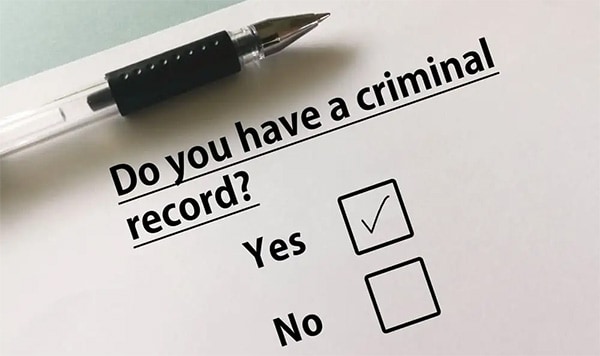Spent Convictions Scheme
I would like to say a very big thank you for all your help and understanding of my son’s JP’s case. The whole process was daunting until we came to Galbally Parker. You guys are fabulous people and Ruth Parker is just a Gem. We will always be thankful and always remember what Galbally Parker did for my son & be forever grateful we could bring him home.
July 2023
Is my Criminal History permanent?
Your Criminal History doesn’t have to be permanent. The introduction of the Spent Conviction Scheme allows people to have their criminal history expunged so that they don’t have the stigma and shame of a criminal history follow them forever. It really is an amazing legal development and our office is already at work preparing applications to have their convictions spent. Many of our clients have already experienced the benefits of the scheme and can happily apply for jobs without a National Police Check exposing a prior criminal matter. Depending on the seriousness of the criminal conviction, there are different ways to take advantage of the Spent Conviction Scheme. Our office is across the legislation and our team can make the difference to having your criminal record wiped so that you can move forward.

What is the Spent Convictions Scheme?
The Spent Conviction Scheme started coming into effect, in stages from March 2021. The Spent Conviction Scheme allows for convictions to be automatically spent or spent upon application, giving people with criminal histories the opportunity to avoid the stigma of those histories for the remainder of their lives. It also allows for people to move on with their lives and careers, without having to explain offending that may have happened many years (even decades) ago.
It makes it an offence to disclose information about a spent conviction, giving additional protection to those who would like to put the past behind them.
Pursuant to section 7 of the Act, where a conviction is not recorded by the court or it is qualified by age or mental impairment (subject to the provisions of the Act), the conviction becomes automatically spent.
There are essentially three forms of spent convictions: automatically spent convictions, convictions spent by passage of time and convictions spent upon application.
Automatically Spent Convictions
The following convictions become spent on the day on which a person is convicted if:
- The conviction is not recorded by a court (ie a non-conviction disposition)
- The conviction is a qualified finding of guilt under section 17(1)(c) or 38X(1)(c) of the Crimes (Mental Impairment and Unfitness to be Tried) Act 1997
- The conviction is for an offence committed when the person was under the age of 15 years
- The only penalty imposed was a fine from the Children’s Court or equivalent
- The conviction results in an infringement conviction
If there is a condition imposed for the conviction the conviction becomes spent after the competition of said condition. For example, where the person has to comply with the requirements of an adjourned undertaking.
Convictions spent by passage of time.
Where a conviction is not automatically spent, because it does not fall into the aforementioned categories, it may be spent by passage of time by virtue of them being non-serious offences.
A conviction period is a period of 5 years for young offenders imposed under:
- Children’s Court Act 1973
- Penalties and Sentences Act 1985
- Children and Young Persons Act 1989
- Sentencing Act 1991
- Children, Youth and Families Act 2005
A conviction period is a period of 10 years for any other person. This system reflects systems in other common law jurisdictions, where after 10 years the conviction is ‘expunged’.
The conviction period commences on the day a court makes a finding of guilt that constitutes a conviction. There are other provisions that relate to subsequent convictions.
Spent conviction with application
For serious offences a person may apply to the Magistrates’ court for a spent conviction order
A person may apply if they were a child or young offender and the conviction was imposed under the:
- Children’s Court Act 1973
- Penalties and Sentences Act 1985
- Children and Young Persons Act 1989
- Sentencing Act 1991
- Children, Youth and Families Act 2005
Or, if the person was not a child or young offender, and in the case of a serious violence offence or sexual offence, no term of imprisonment was imposed or, if imprisonment was imposed, it was not more than 5 years.
A person cannot apply for a spent conviction before the day on which the conviction period for that last conviction expires, but can apply in relation to more than one conviction imposed.
A person also cannot apply if the Magistrates’ Court has refused an application in relation to that conviction within the previous 2 years unless the refusal was in relation to further information being required. Upon making an Application in writing, the matter may be the subject of submissions.
Once an application is made, as soon as practicable a copy of the application must be served on the Attorney-General (AG) and the Chief Commissioner of Police.
Once the AG and Chief Commissioner of Police have been served they may make any submissions to the Magistrates’ Court in respect of the conviction in relation to which the order is sought and they must provide written notice that they intend to make such submissions before the expiry of a period of 28 days after being served with the application.
The Magistrates’ Court may determine an application without holding a hearing unless written notice of intention to make submissions is given. The Magistrates’ Court must not make a determination before the expiry period of 28 days after the AG and Chief Commissioner of Police have been served with the application.
If a hearing is to be conducted, this must be closed to public unless the Court considers that the circumstances of the case justify the hearing being open to public. Notice must be given by the Court of the time, date and place of hearing to all parties and, if it is to be a closed hearing the Court, must give direction on which persons may be present. This process will be easier now that most hearings are being conducted online.

Principles of Hearing
Hearings are not bound by rules of evidence and the Court may inform itself in any way it deems fit.
The Court must act with regard to the substance of the application and without regard for the technicalities or legal forms that are not set out under the Act.
The Court may refuse an application if it is deemed vexatious, misconceived or does not comply with the requirements.
Determination of Application
The Court must consider the following;
- The nature, circumstances and seriousness of the offence to which the application relates; and
- The impact on any victim of the offence to which the application relates; and
- The personal circumstances of the applicant; and
- In relation to an applicant who is an Aboriginal or Torres Strait Islander person, unique factors of background affecting Aboriginal or Torres Strait Islander persons including but not limited to;
- Factors relating to incarceration of Aboriginal and Torres Strait Islander persons; and
- Factors relating to the impacts on Aboriginal and Torres Strait Islander persons of disclosure of a criminal record; and
- The age and maturity of the application when the offence was committed; and
- Any demonstrated rehabilitation of the applicant; and
- Any risk to public safety of making the order; and
- Any other matter the Court considers relevant.
Once an order has been determined the court must make an order as soon as practicable to the applicant and the Chief Commissioner of Police.
The Effect of a Conviction being Spent
The effect of a conviction becoming spent is that the spent conviction does not form part of a person’s criminal record and they are not required to disclose the spent conviction. The spent conviction is also not revived by any subsequent conviction of the person. There are exceptions for information sharing amongst law enforcement or for the purposes of exercising a function or power under an Act. For example, a spent conviction may form part of the consideration for a Working with Children Check and for other registration and licensing purposes.
The introduction of this scheme has the potential to significantly assist individuals with old convictions, particularly vulnerable groups, who may be particularly disadvantaged by a historical criminal history. It also allows for people to apply for a spent conviction in circumstances where they committed serious offences, whilst suffering personal hardship. In short, this legislation allows people to move forward.
If you believe that you may be eligible to apply to the Magistrates’ Court to have a conviction spent, please contact our office today to discuss your matter.
How Galbally Parker Lawyers Can Help with the Spent Convictions Scheme
If you are facing criminal conviction or have been criminally convicted, one of the specialist criminal lawyers at Galbally Parker may be able to help you protect your criminal record from being publicly disclosed. Contact the team today.
Speak to our team about the Spent Convictions Scheme today

